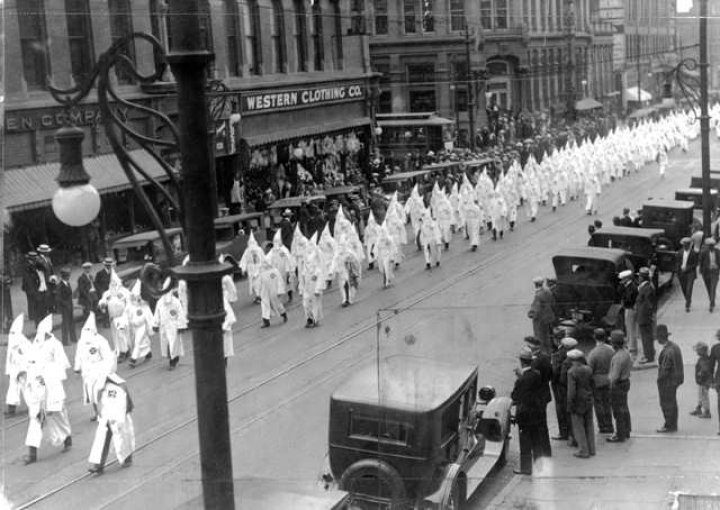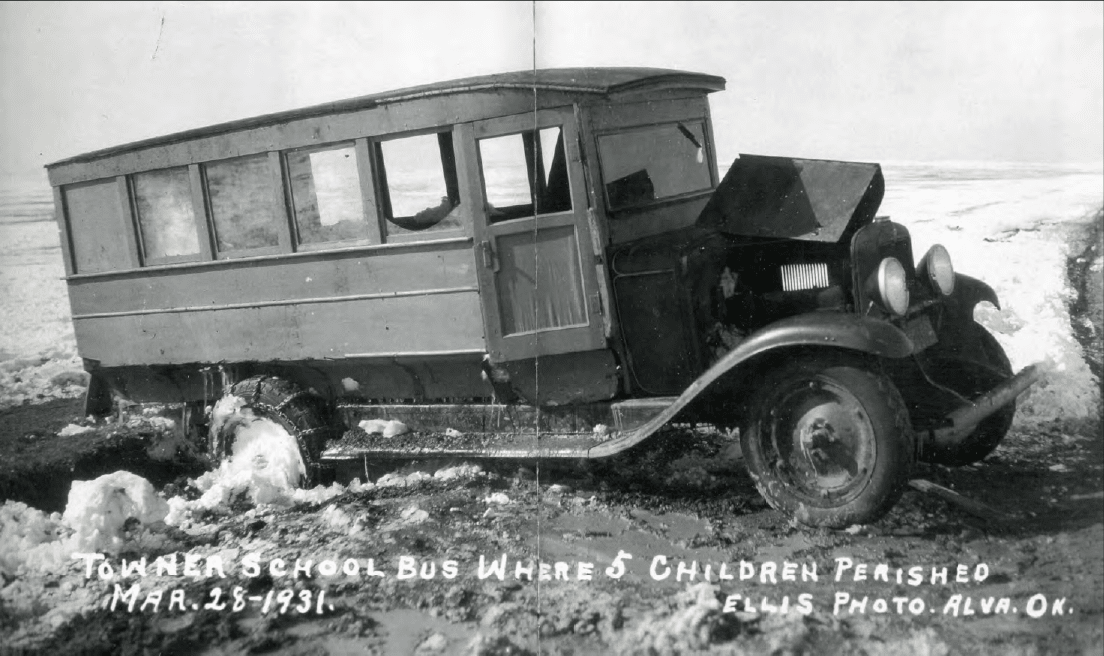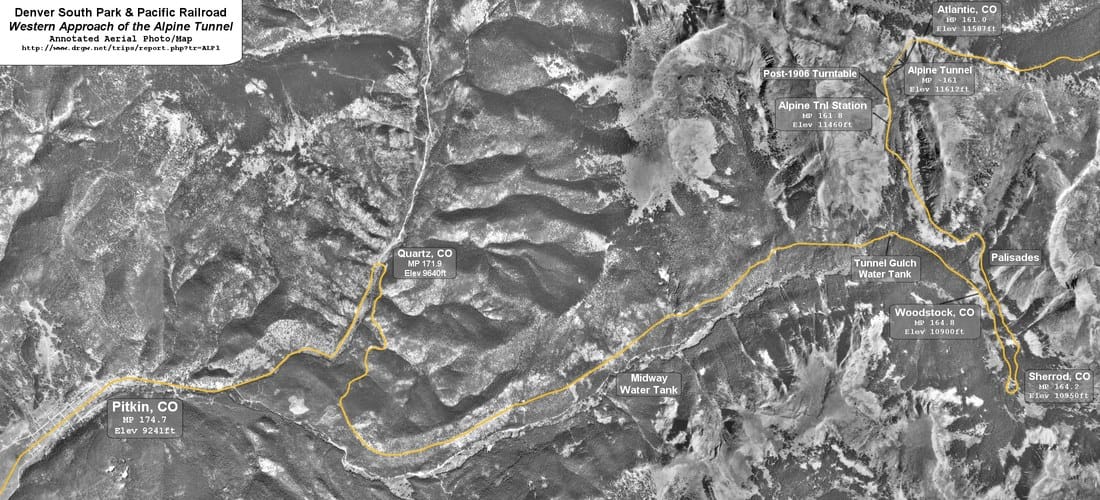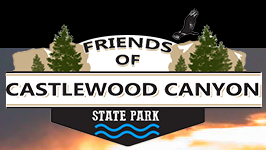What: In the State we love so much, let's not forget our dark side(s). Who knew that the Ku Klux Klan had the second greatest national participation in Colorado, second only to Indiana. The post World War I era ushered in a nationwide pulse of nationalism. Americanism became huge as the legacy of WWI left immense fear and hatred. Powerful bigotry took hold, small town values were the way. Voters wanted Calvin Coolidge, hated Roosevelt and thought that government's role was to facilitate an individuals right to strike it rich. The Klan claimed more than 2 million members at its peak. Most attracted by the common thread of hate, fear and greed. Fear of change, fear of Catholics, fear of African Americans, fear of Jews, fear of just about everything. In 1924, seven out of ten Klansmen voted to elect Benjamin F. Stapleton mayor of Denver. He vowed to, "give the Klan the kind of administration it wants."
When: 1921 to 1925.
Who: Membership in Denver reached 17,000 (1/2 of Colorado's total); Imperial Wizard William J. Simmons (Denver); Grand Dragon John Galen Locke (1923); Benjamin F. Stapleton (Democrat); Rice W. Means appointed director of public safety by Stapleton; Klansman occupied the offices of lieutenant governor, auditor, attorney general, secretary of state, city attorney, chief of police, and supreme court justice; they were all Klansmen. Republican Lawrence Phipps (not a member), the reelected US Senator, contributed mass sums to the Klan in exchange for votes. Klansmen Clarence J. Morley elected governor and Rice W. Means later elected US senator.
Where: Harassment and violence against the Jews in neighborhoods along West Colfax. Attacks against the NAACP. Klan parties at Lakeside Amusement Park. The Klan also had a significant presence in Colorado Springs and Canon City where it dominated both political parties. Much of the membership was out of fear of bootleggers and prostitution. Walsenburg and Trinidad residents had similar reasons for enrollment. Made up of mostly Protestant Americans, along with shelter from their fears, the Klan offered excitement, camaraderie and, in the small town of Flagler Colorado, even had a nine-hole golf course for its country club Klan members.
Significance: A huge part of our past. At one time, the Klan owned our state. The election of mayor Benjamin Stapleton caused the Denver Post to conclude that the Ku Klux Klan was "the largest, most cohesive and most efficiently organized political force in the state of Colorado today." The Republican Party, heavily backed by the Klan, controlled both houses of the legislature. Governor Morley would not make a decision without consulting the Grand Dragon. Morley proposed legislation to exclude certain aliens from the state and to prohibit the use of sacramental wine. Stapleton eventually was instrumental in the demise of the Colorado Klan, but his connection can not go unnoticed. The Klan's rise and fall was relatively swift. Still, a sore spot in our history.
When: 1921 to 1925.
Who: Membership in Denver reached 17,000 (1/2 of Colorado's total); Imperial Wizard William J. Simmons (Denver); Grand Dragon John Galen Locke (1923); Benjamin F. Stapleton (Democrat); Rice W. Means appointed director of public safety by Stapleton; Klansman occupied the offices of lieutenant governor, auditor, attorney general, secretary of state, city attorney, chief of police, and supreme court justice; they were all Klansmen. Republican Lawrence Phipps (not a member), the reelected US Senator, contributed mass sums to the Klan in exchange for votes. Klansmen Clarence J. Morley elected governor and Rice W. Means later elected US senator.
Where: Harassment and violence against the Jews in neighborhoods along West Colfax. Attacks against the NAACP. Klan parties at Lakeside Amusement Park. The Klan also had a significant presence in Colorado Springs and Canon City where it dominated both political parties. Much of the membership was out of fear of bootleggers and prostitution. Walsenburg and Trinidad residents had similar reasons for enrollment. Made up of mostly Protestant Americans, along with shelter from their fears, the Klan offered excitement, camaraderie and, in the small town of Flagler Colorado, even had a nine-hole golf course for its country club Klan members.
Significance: A huge part of our past. At one time, the Klan owned our state. The election of mayor Benjamin Stapleton caused the Denver Post to conclude that the Ku Klux Klan was "the largest, most cohesive and most efficiently organized political force in the state of Colorado today." The Republican Party, heavily backed by the Klan, controlled both houses of the legislature. Governor Morley would not make a decision without consulting the Grand Dragon. Morley proposed legislation to exclude certain aliens from the state and to prohibit the use of sacramental wine. Stapleton eventually was instrumental in the demise of the Colorado Klan, but his connection can not go unnoticed. The Klan's rise and fall was relatively swift. Still, a sore spot in our history.





